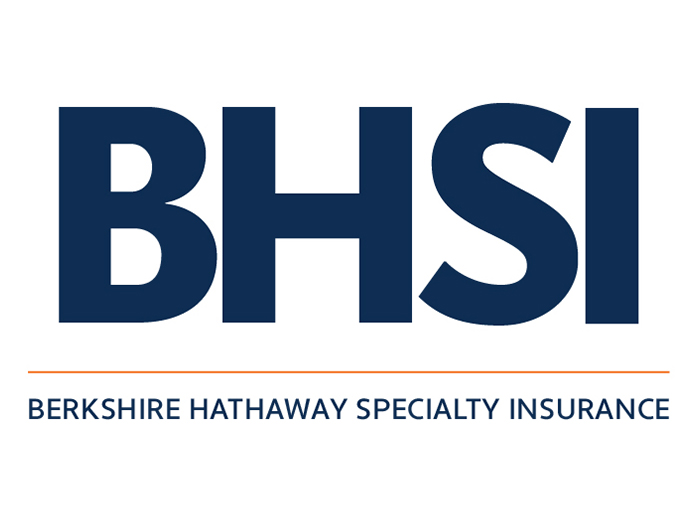Sponsored: Swiss Re Corporate Solutions
Companies Are Going Global. Here’s Why They Need a Strong International Insurance Programs Partner to Support That Growth

If the last few years have illustrated anything, it’s how globalized the economy has become.
Port closures in China and other countries have led to massive supply chain delays in America. Geopolitical issues have contributed to product shortages that have had ripple effects for economies around the globe.
Yet even as businesses have faced challenges due to globalization, more and more companies are expanding their operations abroad. Some may open global sales operations, others might diversify their supply chains by working with companies in multiple countries.
“The world — even with everything that’s going on — continues to globalize,” said William Porter, Head of International Programs – Americas at Swiss Re Corporate Solutions.
“Companies are expanding outside of their home countries. They are looking at more efficient supply chains or wanting to expand their sales operations outside of their home market.”
Global insurance programs are also expanding to help insureds find coverage in lines with limited capacity. Property markets have long made up a major percentage of premium volume in the global international programs markets. As large carriers pull back from the line, Porter expects more carriers will be needed to fill out programs.
“There’s so much opportunity right now,” Porter said. “The established carriers are often not deploying as much capacity as before, so brokers are turning to different markets to fill out programs.”
As both companies and their insurance partners expand internationally, they’ll need to be prepared to manage intricacies of cross-country risk management and transfer. Partnering with a carrier that has strong local network partners and technology solutions can help support the growth of companies’ international operations.
Communication, Compliance and Control: The Intricacies of Cross-Country Risk Management

William Porter, Head of International Programs – Americas at Swiss Re Corporate Solutions
Companies with operations in multiple countries are dealing with a variety of complex variables that need to be managed daily. Tax laws, regulations and exposures will vary from region to region and risk managers and their insurance partners will need to remain abreast of all of these factors.
To make sure they remain in compliance, communication between all of these parties is vital. Even something as simple as a small error in translation in an insurance policy can have complex ramifications for businesses operating in multiple countries.
“We don’t want to have any misinformation out there because of just a translation,” Porter said.
Technology platforms are critical to managing all of these different sources of information. Swiss Re’s PULSE portal can help insureds and their brokers stay informed of their program progress, which helps as they manage different regulatory issues and requirements from country to country. It can help manage communication by keeping everything an insured needs to know about their program in a single space, even if they’re operating with multiple carriers and in multiple countries.
“We can go into the PULSE system and look up the regulatory issues, any kind of pre-quote requirements that we might have, tariff rates, all of these factors that need to be known by an international carrier putting one of these programs together,” Porter said.
“We can use PULSE to track, where are we with the premium, what taxes are included? Have we done what we’re supposed to be doing here? And here’s the proof for the customer.”
Working With a Carrier That Knows How to Build a Strong Local Network
Insureds with international programs will likely work with carriers who rely on a network of owned, local offices and local carrier partners. Partner offices help carriers build a local presence, without having to manage their own office or compete for market share.
“We don’t have to be everywhere in the world,” Porter said. “We can build a network of trusted partners that we have contracts with that are going to represent us in the countries where we don’t have our own offices.”
How a carrier selects its local partners for international programs is a key differentiator. The stronger the partner office, the more robust and high-quality service a carrier is able to offer. Partner companies should have solid connections with brokers in the area and they should have a significant share of the local market.
“We want to have a partner in the country that’s a true player in the insurance market in that country,” Porter said.
Swiss Re evaluates its network of partners based on a number of factors, including financial strength and stability, underwriting performance, regulatory and compliance records and appetite for particular risks.
“We look to work with established players because we want them to know the local customers, we want them to know the local brokers, we want to see that financial track record so that we know they have been, and will be, in it for the long term,” Porter said.
Swiss Re’s International Programs Advantage
With local offices in 26 countries and a strong network of trusted partners, Swiss Re is a reliable international programs partner for insureds. The company is one of just a handful of carriers that can manage large international programs accounts.
Its rigorous partner selection process has allowed Swiss Re to build a strong network to support international business in more than 150 countries. The company scrutinizes local carriers to find those with a sizable share of the market, long-standing relationships with local brokers and a strong reputation for providing excellent claims services.
“They’re active in the market, they have a sizable underwriting presence, they have the services available from a claims or operations standpoint and they can provide the service that our customers need,” Porter said.
Swiss Re’s PULSE portal technology makes managing the complexities of multi-country risk management simple. Launched in 2019, the PULSE portal allows insureds and their brokers to track everything from policy data and premium payments to compliance with local regulations and risk management projects.
“It helps to connect the producing country with all of the other countries around the world that either Swiss Re has owned offices in or we have partners in,” Porter said.
“We’re only entering information one time, we’re keeping the communication channels open between the underwriters in each of those countries and we can also give access to our brokers and our customers so that they can see what’s going on at all times as well.”
In addition to building the international programs platform for their own risk transfer portfolio, Swiss Re has technology and network solutions in place to support mid-size carriers and brokers looking to expand internationally. Brokers and carriers can purchase Swiss Re’s PULSE and Network services to jumpstart their own international programs businesses and support clients that are beginning to expand abroad. Access to established tools and partner networks can help mid-sized companies know they’re on solid footing as they grow their businesses in other countries. The solutions can be purchased separately or bundled together.
“As companies grow, their insurance carriers have to be able to grow with them. The last thing they want to do is lose a customer they’ve had for 10 or 20 plus years because now this customer’s not domestic anymore, they’ve opened a sales office in two other countries,” Porter said.
“This technology brings into that middle market space the opportunity for carriers to buy a network, to buy the technology and be able to service their customers as they go international. This offering rounds out our international programs offering and helps support our goal of advancing commercial insurance together.”
To learn more, visit: https://corporatesolutions.swissre.com/insurance-solutions/international-programs.html.
This article was produced by the R&I Brand Studio, a unit of the advertising department of Risk & Insurance, in collaboration with Swiss Re Corporate Solutions. The editorial staff of Risk & Insurance had no role in its preparation.










